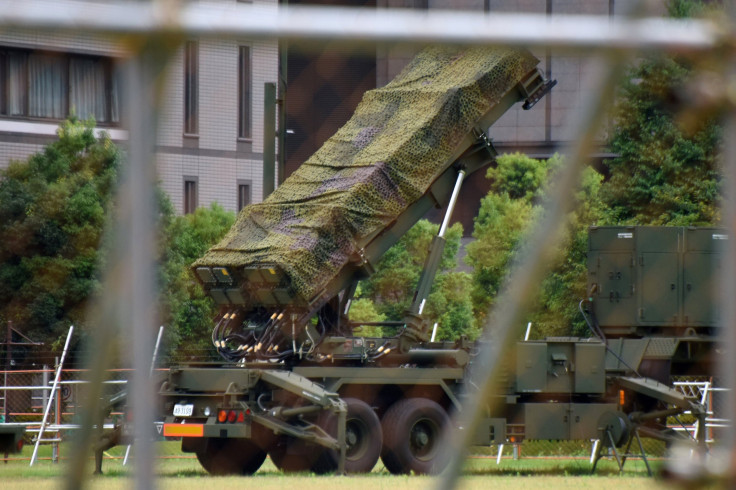Japan To Buy $133M Of Interceptor Missiles Amid North Korea Nuclear Threat

The U.S. Department of State agreed to the sale of an estimated $133 million worth of interceptor missiles to Japan amid growing tensions in the Korean peninsula over North Korea's nuclear war threats. The announcement comes amid the much anticipated high-level talks between the Koreas on Tuesday.
The U.S. Defense Security Cooperation Agency announced in a press release the Pentagon has decided to green light the deal as Japan plans to “fundamentally” improve its defenses.
"The government of Japan has requested a possible sale of four (4) Standard Missile-3 (SM-3) Block IIA missiles," the release said Tuesday. "Also included are four (4) MK 29 missile canisters, US government and contractor representatives' technical assistance, transportation, engineering and logistics support services and other related elements of logistical and program support. The estimated total case value is $133.3 million."
"The proposed sale will provide Japan with an increased ballistic missile defense capability to assist in defending the Japanese homeland and U.S. personnel stationed there. Japan will have no difficulty absorbing these additional munitions and support into the Japan Maritime Self Defense Force (JMSDF)," the statement added.
North Korea continued its nuclear advances despite condemnation from the international community. It ramped up its missile activity last year, firing ballistic missiles that repeatedly landed in the Sea of Japan, raising concerns in Tokyo.
Amid escalating tensions between North Korea, its neighbors and the U.S., this week saw a series of breakthroughs, with Pyongyang agreeing to reopen the diplomatic hotline, send a high-ranking delegation of athletes and officials to the upcoming Winter Olympics and hold military talks to reduce hostility between the nations.
On Wednesday, South Korean President Moon Jae-in credited President Donald Trump with making a "huge" contribution to bringing the North and South together for landmark talks.
"War must not break out on the Korean Peninsula again," Moon said. "My goal is to resolve the North Korean nuclear problem and solidify peace during my term."
Ahead of the talks, Trump took credit for creating the right conditions for the talks: "With all of the failed “experts” weighing in, does anybody really believe that talks and dialogue would be going on between North and South Korea right now if I wasn’t firm, strong and willing to commit our total “might” against the North. Fools, but talks are a good thing!"
Japan has been planning to strengthen its defense system, with last month the government approving the purchase and deployment of two Aegis Ashore batteries that cost an estimated $2 billion, including infrastructure, with each unit of the system accounting for at least $888 million.
Moscow criticized Japan’s plans to expand its missile shield with Aegis systems, saying it could undermine bilateral relations “including negotiations on a peace treaty” that has not been concluded between Russia and Japan since WWII. However, Washington defended Japan saying the deal is in “full compliance” with the agreement.
© Copyright IBTimes 2024. All rights reserved.





















